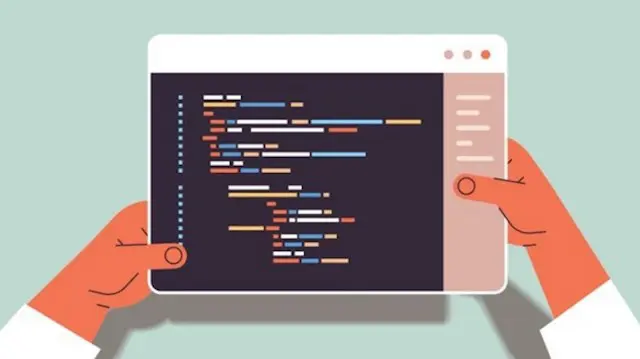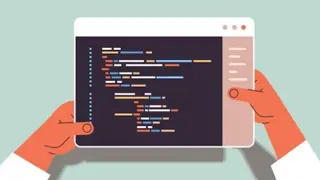
R Programming Course
Self-paced videos, Lifetime access, Study material, Certification prep, Technical support, Course Completion Certificate
Summary
- Certificate of completion - Free
- Reed courses certificate of completion - Free
Add to basket or enquire
Overview
This R Programming course by Uplatz will help you to master the R programming language in great detail. This is self-paced video-based course. You will be awarded Course Completion Certificate at the end of the course.
R is a programming language and software environment used for statistical computing, data analysis, and graphical visualization. It was created in 1993 by Ross Ihaka and Robert Gentleman at the University of Auckland, New Zealand.
R has become increasingly popular in recent years due to its ability to handle large and complex data sets and its extensive library of statistical and graphical tools. It is widely used by statisticians, data scientists, and researchers in various fields, including finance, biology, engineering, and social sciences.
R is an open-source software and is freely available under the GNU General Public License. It can be installed on various operating systems, including Windows, macOS, and Linux. R has a large and active community of users who contribute to its development, maintenance, and improvement.
To start working with R, users can download and install the R software, which includes the R programming language and several useful packages. Users can write and execute R code in the R console, a command-line interface that allows users to interact with R and view the output of their code. Alternatively, users can use an integrated development environment (IDE) like RStudio, which provides a more user-friendly interface and additional features for data analysis and visualization.
Some of the key features of R include:
- Data manipulation and cleaning: R provides various functions and packages for cleaning and transforming data, including filtering, sorting, merging, and reshaping data frames.
- Statistical analysis: R includes a vast library of functions and packages for statistical analysis, including regression analysis, hypothesis testing, and time series analysis.
- Data visualization: R provides powerful tools for creating visualizations of data, including bar charts, histograms, scatter plots, and heat maps.
- Machine learning: R includes several packages for machine learning, including classification, regression, and clustering algorithms.
- Reproducibility: R provides tools for creating reproducible research, which enables other researchers to reproduce and verify the results of a study.
At the end of this course, your will be able to:
- Explain the advantage of using a script vs point-and-click methods
- Understand basic programming concepts such as data types, data structures and
indexing, and use them in your work
- Apply basic functions
- Conceptualize and create if-else statements and loops to solve different types of
problems
- Create your own customized functions
- Create plots
- Perform basic exploratory data analysis with summary statistics and plots
- Demonstrate the use of selected libraries
- Understand new data sets and functions by yourself using R
Certificates
Certificate of completion
Digital certificate - Included
Course Completion Certificate by Uplatz
Reed courses certificate of completion
Digital certificate - Included
Will be downloadable when all lectures have been completed
Curriculum
Course media
Description
R Programming - Course Curriculum
Module 1: Introduction to R
- What is R?
- Installing R and RStudio
- R basics: data types, arithmetic, variables, functions
- Introduction to R packages
Module 2: Data manipulation in R
- Reading and writing data in R
- Data frames and tibbles
- Subsetting and filtering data
- Manipulating data with dplyr and tidyr
Module 3: Data visualization in R
- Introduction to ggplot2
- Basic plots: scatter plots, histograms, box plots
- Customizing plots with themes and aesthetics
Module 4: Data analysis in R
- Introduction to statistical analysis in R
- Basic statistical tests: t-tests, ANOVA, correlation
- Linear regression in R
Module 5: Programming with R
- Control structures: if/else, for loops, while loops
- Functions in R
- Writing scripts and organizing code
Module 6: Advanced topics
- Working with dates and times
- RMarkdown: creating reports and documents with R
- Shiny: creating interactive web applications with R
Who is this course for?
There are various job roles associated with R programming. Some of the common job roles are:
Data Analyst: Data analysts use R programming to analyze large amounts of data, visualize data, and extract insights from data. They typically work with data from various sources such as business operations, financial transactions, and social media to help organizations make informed decisions.
Data Scientist: Data scientists use R programming to develop predictive models, machine learning algorithms, and other statistical methods to analyze complex data sets. They typically work with data that is both structured and unstructured to solve complex problems.
Statistician: Statisticians use R programming to perform statistical analysis on data sets, develop statistical models, and perform hypothesis testing. They typically work in fields such as healthcare, social sciences, and business to help organizations make data-driven decisions.
Quantitative Analyst: Quantitative analysts use R programming to develop mathematical models and algorithms to analyze financial data. They typically work in financial institutions such as banks, hedge funds, and investment firms.
Machine Learning Engineer: Machine learning engineers use R programming to develop machine learning algorithms and models. They typically work in industries such as healthcare, finance, and technology to build predictive models and solve complex problems.
Researcher: Researchers use R programming to analyze data in fields such as science, engineering, and social sciences. They typically work in academic institutions and research organizations to analyze data and publish research papers.
These are just a few examples of job roles associated with R programming. With its popularity among data analysts and data scientists, R programming has become an important skill in various industries.
Career path
- Data Scientist
- Software Engineer
- Data Analyst
- Machine Learning Engineer
- Data Visualization Developer
- Software Developer
- Data Consultant
- BI Developer
- Application Developer
- BI Consultant
Questions and answers
Currently there are no Q&As for this course. Be the first to ask a question.
Reviews
Currently there are no reviews for this course. Be the first to leave a review.
Provider
Uplatz is leading global provider of IT & Technology training.
We have a strong network of qualified and experienced tutors. Uplatz provides training on cutting-edge technologies such as Data Science, Machine Learning, AWS, Microsoft Azure, Google Cloud, IBM Cloud, Data Engineering, Python, R, Java, SAP, Oracle, SAS, Salesforce, Web Development Stack, JavaScript, ReactJS, AngularJS, NodeJS, JSP & Java Servlets, MongoDB, BI Tools such as Tableau, Spotfire, Power BI, DW & ETL tools such as Informatica, IBM DataStage, Talend, DevOps, Project Management, Software Testing, and many more.
We provide training courses in both online formats - 1) live tutor-led, 2) self-paced videos
We feel proud to say that we are making learning affordable by keeping prices of all our courses very low. Our course prices are listed at almost 90% discounted rate from average market price.
Our Vision
- To become a global leader in the learning sector by providing training on job-oriented technologies
Our Mission
- To provide high-quality training on industry-demanded technologies
- To make learning affordable for the masses by keeping our prices extremely low
- To help our talented students get a high-paying job in the market
Will I get a Certificate of Course Completion?
Course Completion Certificate is awarded by Uplatz
What are your top courses?
- Data Science
- Machine Learning
- Cloud Computing - AWS, Azure, Google Cloud, IBM Cloud, and more
- Data Engineering
- SAP modules such as S/4HANA Finance, EWM, TRM, FICO, BPC, HCM, WM, MM, PP, PM, QM, SD, TRM, SuccessFactors, UI5 and Fiori, S/4HANA Logistics, TM, etc.
- Oracle
- SAS
- Salesforce
- BI Tools - Tableau, Power BI, Spotfire, MicroStrategy, etc.
- DW & ETL Tools - Informatica, Talend, IBM DataStage, etc.
- Project Management & DevOps
- Software Testing
- Digital Marketing & SEO
Will I be provided study material, tutor notes and practice assignments?
Uplatz provides tutor notes, practice assignments, practice sessions, and a lot of useful study material for free. This will help you in job interviews and certification exams.
In case of tutor-led online training, will I have access to the recorded sessions?
Yes. All live classes get recorded and life-time access on the recordings is provided.
Course Search and Enrollment
Simply search the course of your choice! We have a portfolio of more than 1000 courses with the premium ones highlighted clearly. Just search for the course that you want to take or simply use our online course finding tool to help you choose the best courses as per your needs and market demand.
Uplatz differentiates itself by providing extremely affordable learning to all and that too in the comfort of their homes.
Just contact us for a customized quote, your preferable timings, your affordability, and we'll work out the best course for you that will provide you not only a great return on investment but also to help you get a job with a premium salary. We'll also get you prepared for the certification exams.
Legal information
This course is advertised on Reed.co.uk by the Course Provider, whose terms and conditions apply. Purchases are made directly from the Course Provider, and as such, content and materials are supplied by the Course Provider directly. Reed is acting as agent and not reseller in relation to this course. Reed's only responsibility is to facilitate your payment for the course. It is your responsibility to review and agree to the Course Provider's terms and conditions and satisfy yourself as to the suitability of the course you intend to purchase. Reed will not have any responsibility for the content of the course and/or associated materials.

